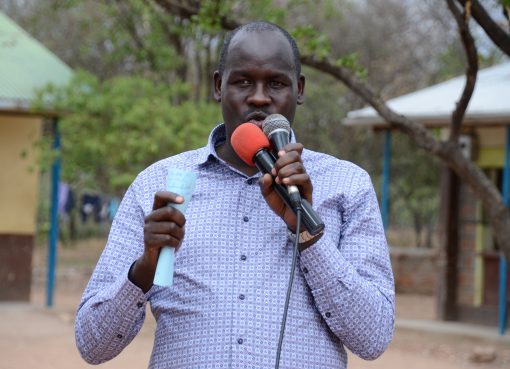The Cabinet Secretary for Agriculture, Livestock and Fisheries (CS), Mwangi Kiunjuri has called upon practitioners in the veterinary services to prioritize reporting disease’s outcomes and other events of significance for quick intervention.
He said reporting of such events will enable the government capture adequate data that will support in planning for interventions.
Kiunjuri said the ministry expects the Kenya Veterinary Board (KVB) to serve as an enabler in achieving the objectives of the Big Four Agenda through improving food and nutrition security and safety arising from increased productivity of livestock, fish and other animal food through better health and welfare from veterinary interventions.
“The Board is expected to be compliant with the International standards governing veterinary statutory bodies set by the world organization for animal health in terms of governance, mandate, representation and independence,” he said.
The CS made the remarks in a speech read on his behalf by the Livestock Principal Secretary (PS), Harry Kimutai during the launch of Kenya Veterinary Board 2018-2022 Strategic Plan at a Nairobi hotel.
He told the Board to play their role of regulating and advising the national and county governments in relations to regulating animal health, production, welfare, food service and private practice.
“Veterinary malpractices remains a challenge, and it is the ministry’s wish that we continue supporting the newly established veterinary medicines directorate to ensure that it effectively plays its critical role,” stressed Kiunjuri.
The CS advised the practitioners to seize the numerous opportunities available in their value chains as Kenyans need their services and cautioned them not to create a vacuum, as it will make quacks reign in their practice.
He at the same time, announced that his ministry has provided the Board with resources to develop a resource center in Kabete to serve as the headquarters and other related functions.
The CS also urged all stakeholders, development partners and other government agencies to support KVB to fulfill the mandate of regulating veterinary practice.
Speaking at the event, the KVB Chairman, Dr. Christopher Wanga said that the 2018-2022 Strategic Plan was generated on the experiences and challenges from the previous plan looking at poor infrastructure, inadequate human, financial and institutional resources, poor access to veterinary services and weak administration.
“For the successful implementation of the plan, the board seeks support from all relevant stakeholders, as well as commitment and dedication from the Board of Directors and a coordinated framework from all our employees,” he said.
He however, called on veterinary officers to report malpractices to the board’s sergeants in a bid to weed out quacks in the sector, so that Kenyans get quality veterinary services.
KVB is delegated with the mandate of facilitating development of animal resource industry in Kenya through setting standards for veterinary training, practices of registering and licensing veterinary practitioners, businesses and institutions.
The KVB Strategic Plan which is the second plan will spend Ksh. 1.0184 billion in the implementation over the five years period (2018-2022).
By Nancy Marende/ Bernadette Khaduli


